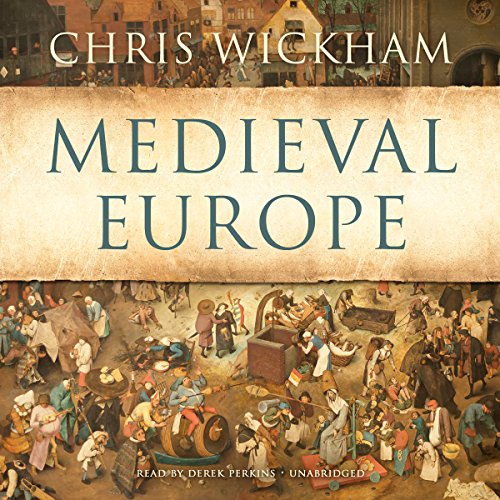Review: Medieval Europe by Chris Wickham
August 26, 2022 • Benjamin Keninger
Recently I was in the mood to hear about the Middle Ages in Europe and learn how many of the current states on the continent began to take shape. Browsing Audible, I found Medieval Europe by Chris Wickham and gave it a shot. Here are my thoughts:

While I dislike starting these reviews with something negative, I believe it must be said immediately that this book has some sentences that can be incredibly difficult to follow. Wickham has the tendency to try and cram as much as he can into a single sentence, resulting in long, run-on sentences that always seem to have some kind of anecdote or subthought contained within the them. This is made all the worse when listening to it as an audiobook, as it is often quite difficult to go back and relisten to the absolute maze of sentences Wickham enjoys constructing.
Another aspect of this book worth definitely worth mentioning is that it is less about the chronological history of the Middle Ages and more about analyzing the socio-economic status of Medieval Europe and how it changed over time. Little time is spent covering the history of the era, if anything Medieval Europe expects you to already know it as the book is constantly making references to historical events as if the reader already knows what they are. There is nothing wrong with this, of course, but just make sure you've done your homework before choosing to pick this audiobook up.
The book covers the timeframe which you would expect - roughly from the fall of the Western Roman Empire to the Renaissance. This is somewhat ironic, as part of Wickham's overall thesis is that the "Middle Ages" aren't really as distinct as we tend to think and the start & end points of the era are somewhat arbitrarily decided. Additionally, as is common among many pieces of writing covering the European Middle Ages, Medieval Europe focuses more on Western Europe than it does East (though it does discuss the Byzantines on numerous occasions). This makes sense, however, as the book focuses on the socio-economical situation of Medieval Europe and how it evolved over time and, generally speaking, many more developments and progressions occured in the western half of the continent during the Middle Ages.
Ultimately I still recommend Medieval Europe with the caveat that the reader should already possess some historical knowledge of the titular subject. While the writing can at times be frustrating to follow, the book makes up for this by delivering a sophisticated discussion on the realities of Europe's 'Dark Age' and gives the reader a deeper understanding of the period beyond just learning the names of kings and the dates of battles.